- Home
- Darynda Jones
First Grave on the Right Page 8
First Grave on the Right Read online
Page 8
He pried one of my hands off his shirt and led it down his pants to cover his erection. I sucked in a sharp breath, inhaling the heat that drifted off him. I felt a hand squeeze between my legs, and liquid fire pooled in my abdomen. I wanted him on me, around me, and in me. I could think of nothing else but the utter sensuality of this perfect being.
My hunger seemed impenetrable until I heard my name from a distance and the fog began to evaporate.
“Charley?”
I tumbled out of the dream and snapped to attention. Everyone in the room stared at me openmouthed. Uncle Bob stood halfway in the door with a quizzical expression drawing his brows together. Garrett looked on as well. Agitation flashed in his eyes. He turned and strode out the door, nodding brusquely to Uncle Bob as he walked past.
And then I realized it was gone. He was gone. No longer able to bear my own weight, I sank to the floor and stewed in my own astonishment.
“Were you just possessed?” Cookie asked after a long moment, awe softening her voice. “ ’Cause let me tell you, sweetheart, if that was possession, I’m selling my soul.”
Chapter Six
ADD. A lifetime of distractions.
—T-SHIRT
While I wanted nothing more than to quiz the dearly departed about Reyes—Did they get a good look at him? What color were his eyes? Did he seem, I don’t know, dead?—Uncle Bob insisted on discussing the case. In the meantime, my sanity hung in the balance. My fragile sense of well-being. My ability to cope with the everyday realities of reality. Not to mention my sex life.
Was nothing sacred?
“Did you get an ID on the shooter?” Uncle Bob asked as we headed back into my office, currently dubbed the Dead Zone.
“No.” The room seemed cold now, probably because I’d just had a near-sex experience with a blazing inferno. I cranked up the heat and poured a cup of coffee before sitting down.
Uncle Bob sat across from me. “No? Well, are they, you know, here?”
“Yes.” How was this happening? Clearly Reyes wasn’t your everyday, run-of-the-mill corpse. If it was Reyes. If he was a corpse.
“So, you haven’t talked to them about it?”
“No.” If he was dead, how was he so … hot? Like literally hot? Then again, if he was alive, how was he incorporeal? How did he move so fast? How did he switch from one molecular state to another? I’d never seen anything like it.
Uncle Bob snapped his fingers in front of my face. I blinked to attention, then glared at him.
“Don’t get mad.” He showed his palms in a gesture of peace. “You keep going elsewhere, and I need you here. We had another homicide last night. Though they don’t appear to be related, I need to know for certain.”
“Another one?” I asked as he lifted an autopsy photo from the file jacket he carried. “Why didn’t you call me?”
“I did. Your phone’s off.”
“Oops.”
“I’ve got the mayor breathing down my neck on this one. Three dead lawyers in one night looks bad on the evening news.”
I checked my cell. “Sorry, my battery bit the dirt.” I guess nothing was safe in the Dead Zone.
After I plugged my phone into its charger, Uncle Bob slid the photo across the desk. A bloated face, blue and purple, appeared before me. It had crusts of blood around several puffy wounds, as if the man had been in an accident. Considering the circumstances, I doubted any of his wounds were accidental. Whoever he was, death had not come easily.
“What happened to him?” I asked.
“He was tortured, then killed. But they weren’t after information.” He pointed to the guy’s mouth and throat. “They taped his mouth and kept pressure on his windpipe to keep him from screaming. So he’d either already given them the info they needed, or they knew what he’d done.”
I let my gaze stray, trying not to seem squeamish.
“The assailants wanted to inflict as much pain as possible before he died. If I had to take a street-educated guess, I’d say he snitched on the wrong guy. This kind of torture is usually reserved for traitors, either to a higher-up in a gang or to an entire group or organization. These days, crime syndicates are more hierarchical than English nobility.”
The lawyers gathered around my desk, so I held up the photo, angling it away from my line of sight. Sussman made a face and stepped back. I was right there with him. But Elizabeth and Barber studied it more closely.
“It’s hard to say for sure,” Elizabeth said. “Maybe if he wasn’t so blotchy…”
“It would help if we had a mug shot instead of an autopsy photo.”
“No ID yet,” Uncle Bob said to me before answering his ringing cell.
Sussman stared at Barber through his round-rimmed glasses. “Do you recognize this man, Jason?”
I glanced toward him. Barber looked stunned, struck speechless, pale despite the physiological impossibility. Since they lacked blood and all.
“That’s him,” Barber said. “That’s the guy who asked me to meet him.”
Elizabeth glanced back at the photo. “That’s your mystery man?” she asked.
“I nearly know it is,” he replied.
Sussman stepped forward and studied the photo again. “Are you sure?”
Barber gave a shaky affirmation. “I wouldn’t bet my life or anything.”
“Too late for that anyway,” Elizabeth said, still gazing at the photo, her face morphing into varying degrees of revulsion.
Uncle Bob shut his phone. “Carlos Rivera. He has an arrest record as long as my legendary and much-envied memory.”
“So, no priors,” I said, holding back a chuckle.
He squinted his eyes and tapped an index finger on his temple. “Like a steel trap.”
“Yeah, you seem to be forgetting that time you were supposed to get me out of Dad’s car and put me to bed while he whipped up some margaritas. I woke up at two in the morning almost frozen solid in the backseat while you were making whoopie with Mrs. Dunlop next door.”
He adjusted his tie. “I believe that was an alcohol-related incident,” he grumbled. A strangely flattering crimson spread over his face, making the whole account worthwhile.
Just to add icing to the cake, I shook my head in mock disappointment. “Whatever helps you sleep at night, Uncle Near Negligent Homicide.”
Elizabeth chuckled.
Uncle Bob didn’t. “How ’bout we leave the filing of criminal charges to the DA.” Before I could argue, he said, “We found Mr. Rivera floating in the Rio Grande.”
“Maybe he was thirsty,” I offered.
“Have you ever tasted the Rio Grande?”
“Not lately,” I said, wondering when he had. And why. And if he carried any parasites because of it. “Barber thinks this might be the same guy who asked him for a cloak-and-dagger meeting.”
Uncle Bob leaned forward, intrigued. “Oh yeah?”
“Yeah.” As Barber explained the incident to me, I relayed the info to Uncle Bob, who, naturally, recorded everything in his notepad.
“This guy calls me,” Barber said, easing onto the seat I’d pulled up earlier. Elizabeth followed suit, but Sussman walked to the window and gazed out at the university campus across the street while we talked. “He wanted to meet in an alley, which I thought was pretty odd. But he sounded, I don’t know, almost desperate.”
“Can he describe his behavior?” Uncle Bob asked me.
“He was nervous,” Barber said, “jumpy. He kept looking over his shoulder, checking his watch. I just figured he was high on the latest jagged little pill.”
“But you listened to him anyway?” I asked, butting into Uncle B’s interview.
“He said he had information on one of our clients,” Elizabeth said. “Jason had no choice but to listen.”
“What information?” I asked, taking note of her knee-jerk leap to his defense. Interesting.
By the time Barber had finished his tale, we’d learned that, according to the deceased Carlos Rivera, there was
a man going to prison for a very long time whose worst crime involved the smoking of a little pot in college. Admittedly, he inhaled.
But forensic evidence pointed to a more severe crime. Police found a murdered teen in his backyard and his own sneakers with the kid’s blood on them inside his house. The sneakers were like the final nail in his coffin. Pile on a corroborating witness—an eighty-year-old woman with Coke-bottle glasses and bunions—and the poor guy went down for murder. The woman stated under oath that she saw the defendant stashing the kid in his backyard. Behind a storage shed. On a dark and stormy night. Clearly, she’d read too many mysteries.
“But it was dark,” I said. “And stormy. She could have seen my great-aunt Lillian stash the body there and assumed it was your client.”
“Exactly,” Barber agreed. “Nonetheless, he was convicted of second-degree murder.”
“Did your client know the kid?” Uncle Bob asked. That was totally my next question.
Barber shook his head. “Said he’d never seen him before in his life.”
“What’s your client’s name?” I asked. Before Uncle Bob could.
“Weir. Mark Weir. He gave me a USB flash drive,” Barber said.
“Who did? Your client?”
“Who did what?” Uncle Bob asked without looking up from his writing.
“Someone gave Barber a flash drive.”
“Who did?” he repeated. For heaven’s sake, didn’t I just ask that?
“No, that guy.” Barber nodded toward the photo. “Rivera. Though he never gave me his name, he did give me a location. He told me I could find the evidence I needed to clear Mr. Weir at a warehouse on the Westside. He said to be there Wednesday night.”
“Time?” Uncle Bob asked. Apparently really good interviewers didn’t need to use complete sentences. I made a mental note.
“He never gave me a time. I think he saw someone following him. He pulled up the hood on his sweatshirt and ducked inside a pizza place before I could ask him anything else.” Barber glanced back at the photo. “I guess they busted him anyway, figured out what he was up to.”
“Today is Wednesday,” I said. “When did all this happen?”
Sussman turned back, and all three lawyers eyed each other. Then Elizabeth answered, a sadness softening her voice. “The day we died.” She glanced at Barber. “It seems so long ago.”
Barber covered her hands with his. Her tough bravado, her powerful don’t-fuck-with-me demeanor, seemed to fade a little.
“This happened yesterday,” I said to Uncle Bob.
“Okay,” he said, launching into Nazi interrogator mode. He asked dozens upon dozens of questions, scribbling wildly in his notebook as I relayed the answers. I wondered if he’d ever heard of a digital recorder.
“The flash drive is on his desk at his office,” I said, answering yet another question. “No, the guy didn’t say what was on it, but Barber got the impression it was a video of some sort. Yes, this Wednesday, today. No, he didn’t see who was following Rivera. They’ve already filed an appeal, but it’ll take months to get it before a judge. Yes. No. The client hasn’t been transferred yet. Maybe. Not on your life. When hell freezes over. Um, okay. No, his other left testicle.”
By the time Uncle Bob had run out of questions—a good thing, since they were veering way off subject—I had run out of energy. Not enough, however, to allay the niggling suspicions I had about this whole situation. This was more important than one innocent man, and I had a feeling it centered on the murdered teen. I needed more information on both.
We headed downstairs to grab a bite. Dad made the best Monte Cristos this side of the Eiffel Tower, and my mouth watered just thinking about them. When I finally had a moment to breathe, my thoughts strayed back to Reyes. It was difficult not to dwell on a man whose mere presence evoked images of the devil hell-bent on sinning.
“I love the name of your dad’s bar,” Elizabeth said as we trod downstairs.
I forced myself back to the present. Elizabeth’s attitude toward me had changed since I’d almost had sex with an incorporeal being in her presence. But I didn’t think she was angry. Or offended. Maybe it was something about Garrett. Maybe she felt as though I were cheating on him, since he seemed to have feelings for me. He had feelings for me, all right, but they weren’t the warm and fuzzy kind.
“Thanks,” I said. “He named it after me, to the utter chagrin of my sister,” I added with a snort.
Sussman chuckled. “He named it after you? I thought it was called Calamity’s.”
“Yeah. Uncle Bob called me Calamity for years, as in Calamity Jane? And when my dad bought the bar, he just figured it fit.”
“I like it,” Elizabeth said. “I had a dog named after me once.”
I tried not to laugh. “What kind?”
“A pit bull.” A mischievous grin spread across her mouth.
“I can totally see that,” I said with a chuckle.
We took a secluded table in a dark corner so I could hopefully talk to my clients without anyone staring. After a quick intro—and an abbreviated version of my night with domestic-abuse husband in the bar to explain the state of my face—I asked my dad if I had any messages.
“Here?” he asked. “Are you expecting one?”
“Well, yes and no.” Rosie Herschel, my first assisted-disappearing case, was supposed to call only if she ran into trouble, so no news was good news. We didn’t want to risk any communication otherwise, any connection to me and my job, thus spilling the fact that she’d hightailed it out of her asshole husband’s pathetic life, not that the man lived anywhere near close enough to the town of Intelligence to figure out what had really happened.
“ ‘Yes and no’ doesn’t answer my question,” Dad said, waiting for me to elaborate.
“Sure it does.”
“Ah,” he said, understanding my point. “Official business. Got it. I’ll let you know if anything comes in.”
“Thanks, Dad.”
He smiled, held it for a moment, then leaned down to whisper in my ear. “But if you ever come into my bar with a bruised and swollen face again, we’re going to have a serious talk about your official business and everything it entails.”
Damn. I thought I’d gotten away with it. I thought I’d convinced him that my ass-kicking was more of an educational experience than a scarred-for-life one.
My shoulders deflated. “Fine,” I said, adding a slight whine to my normally nonalcoholic voice.
He kissed my cheek and took off to cover the bar. Apparently, Donnie hadn’t come in yet. Donnie was a quiet Native American with long black hair and killer pecs. He didn’t care enough about me to give me the time of day, but I pretty much had the time-of-day thing covered anyway. And Donnie was nice to look at.
Uncle Bob closed his cell phone and placed his full attention on me. It was unsettling. “So,” he said, “you want to tell me what was happening when I walked into your office this morning?”
Oh, that. I shifted in my chair uncomfortably. Making out with air must look ridiculous to the ordinary passerby.
“How bad was it?” I asked him.
“Not bad, I guess. I thought you were having a panic attack or something. But then I realized Cookie and Swopes were just staring at you, so I figured whatever it was couldn’t have been life-threatening.”
“Right, because Swopes would have been right there, giving me mouth-to-mouth or something else heroic.”
Uncle Bob tilted his head as he thought back. “Actually, it was more the look of utter longing on Cookie’s face.”
A bubble of laughter rose from my throat. I could totally see the euphoria in Cookie’s expression. Uncle Bob sat patiently, his furry brows raised in question as he waited for an explanation.
Well, he wasn’t getting one. “You know, Uncle Bob, we might want to steer clear of this particular subject, you being my uncle and all.”
“Okay,” he said with a nonchalant shrug, pretending to drop the subject. He sipped from hi
s iced tea, then added, “Swopes seemed pretty upset, though. Figured you might know why.”
“I do. He’s an asshole.”
“He’s a little moody sometimes, I’ll give you that.”
“So was Josef Mengele.”
“But in his defense,” he continued, doing his best to placate me, “this whole rift between you two is my fault. If I’d just kept my mouth shut. Darn those lagers.”
“Well, lagers didn’t turn Swopes into an asshole. I’m pretty sure he was born that way.”
Uncle Bob sucked in a long, deep breath, then dropped the subject for real. “I can see where this is not going. But dammit, Charley, I have a job to do.” I blinked in surprise, and he grinned. “I have to go harass your dad.” He rose from the table and patted my shoulder, which was his way of saying we were good.
I slipped my hand onto his. “Harass him some for me, will you?”
After a soft squeeze, Uncle Bob strolled over to the bar, claiming—loudly—to be an investigator from the CDC. I cringed. Dad found few things less humorous than the thought of the Centers for Disease Control and Prevention paying him a visit. It lay somewhere between an IRS audit and a class action lawsuit.
I glanced back at the lawyers. They were sitting around the table—Uncle Bob had pulled out chairs for them—and talking amongst themselves.
“Do you know when your funeral is?” Elizabeth asked Sussman, her voice tainted with sadness.
He lowered his head. “They’re meeting with the funeral director this afternoon.”
She put her hand on his. “How is Michelle doing?”
“Not well. I need to get back to her.”
Uh-oh. He was going to be one of those departed who stays behind to take care of his family. Similar to the idea that Barber could pale in shock, a ghost taking care of his family was physiologically impossible. I’d have to try to dissuade him from that path when all was said and done.
“What about you?” Barber asked Elizabeth. “Do you know when your funeral is?”

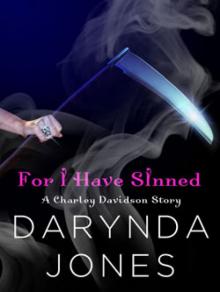 For I Have Sinned
For I Have Sinned First Grave on the Right
First Grave on the Right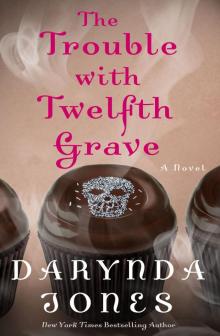 The Trouble With Twelfth Grave
The Trouble With Twelfth Grave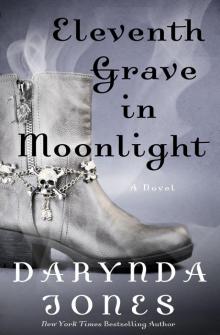 Eleventh Grave in Moonlight
Eleventh Grave in Moonlight Brighter Than the Sun
Brighter Than the Sun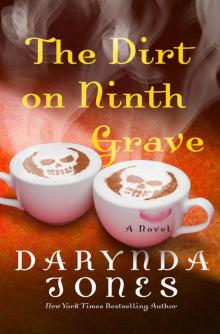 The Dirt on Ninth Grave
The Dirt on Ninth Grave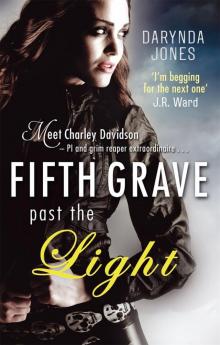 Fifth Grave Past the Light
Fifth Grave Past the Light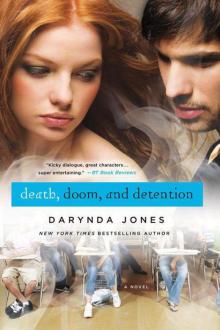 Death, Doom and Detention
Death, Doom and Detention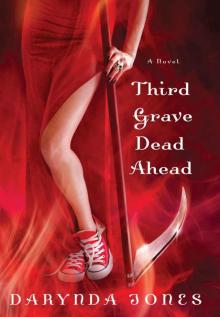 Third Grave Dead Ahead
Third Grave Dead Ahead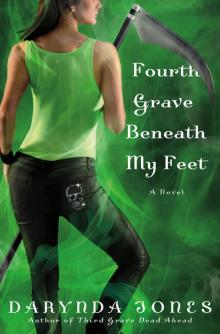 Fourth Grave Beneath My Feet
Fourth Grave Beneath My Feet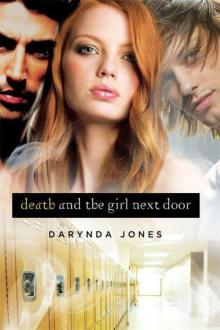 Death and the Girl Next Door
Death and the Girl Next Door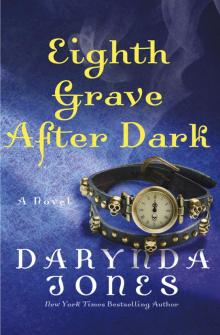 Eighth Grave After Dark
Eighth Grave After Dark Second Grave on the Left
Second Grave on the Left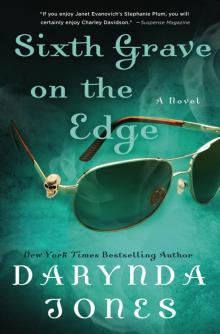 Sixth Grave on the Edge
Sixth Grave on the Edge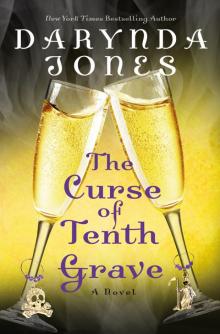 The Curse of Tenth Grave
The Curse of Tenth Grave Bewitched: A Paranormal Women's Fiction Novel (Betwixt & Between Book 2)
Bewitched: A Paranormal Women's Fiction Novel (Betwixt & Between Book 2)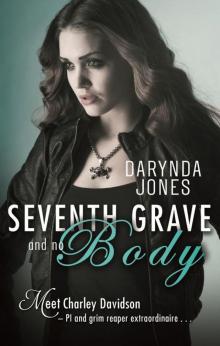 Seventh Grave and No Body
Seventh Grave and No Body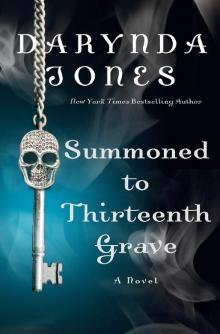 Summoned to Thirteenth Grave (Charley Davidson #13)
Summoned to Thirteenth Grave (Charley Davidson #13)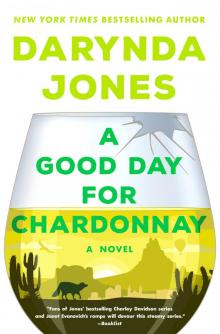 A Good Day for Chardonnay
A Good Day for Chardonnay Death, and the Girl He Loves
Death, and the Girl He Loves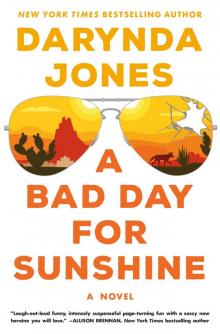 A Bad Day for Sunshine--A Novel
A Bad Day for Sunshine--A Novel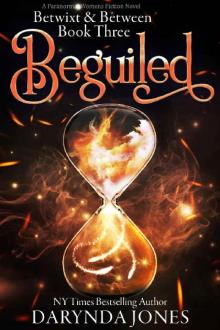 Beguiled
Beguiled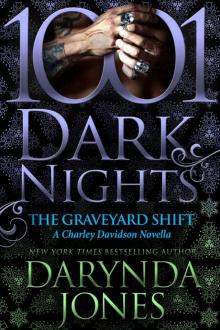 The Graveyard Shift: A Charley Davidson Novella
The Graveyard Shift: A Charley Davidson Novella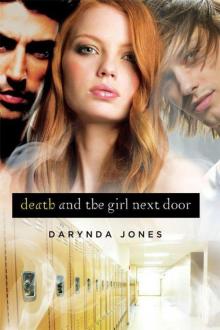 Death and the Girl Next Door d-1
Death and the Girl Next Door d-1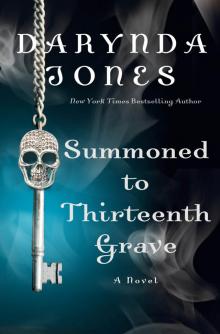 Summoned to Thirteenth Grave
Summoned to Thirteenth Grave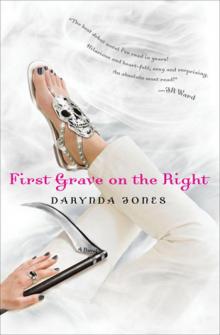 First Grave on the Right cd-1
First Grave on the Right cd-1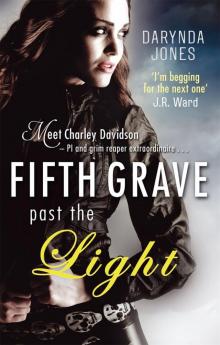 Fifth Grave Past the Light: Number 5 in series (Charley Davidson)
Fifth Grave Past the Light: Number 5 in series (Charley Davidson)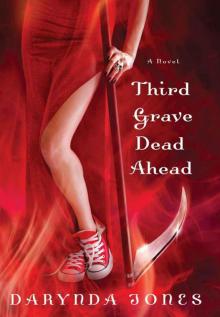 Third Grave Dead Ahead cd-3
Third Grave Dead Ahead cd-3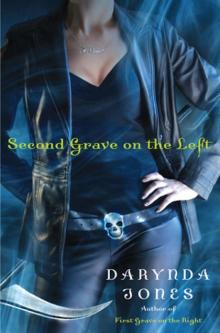 Second Grave on the Left cd-2
Second Grave on the Left cd-2